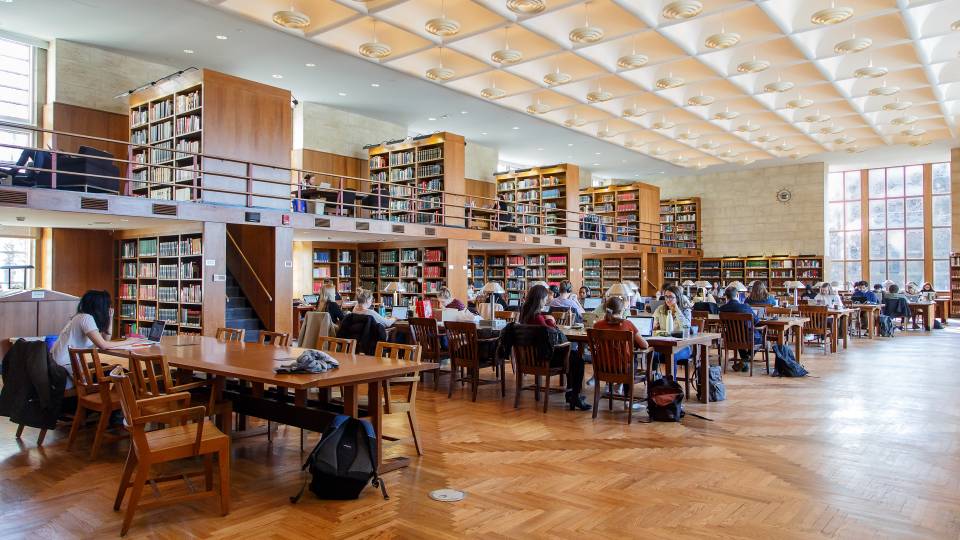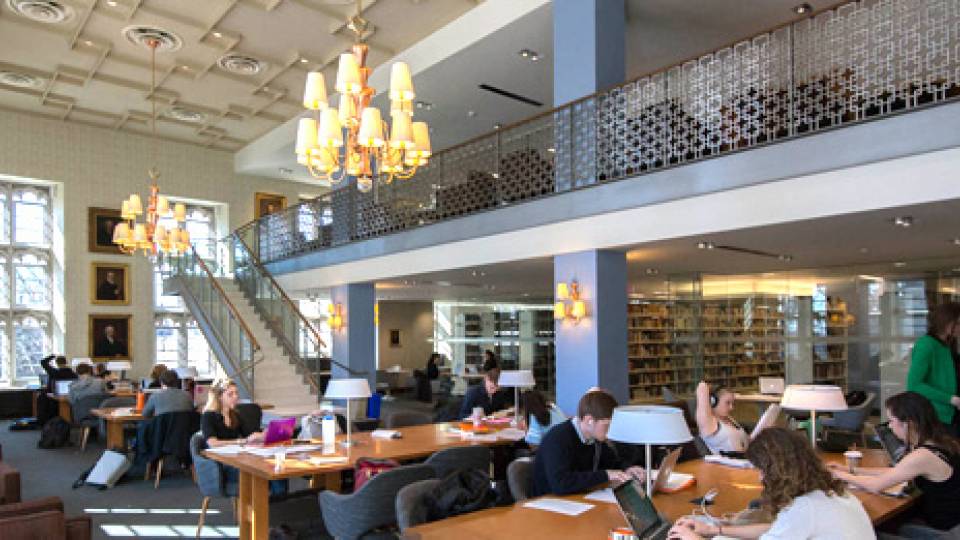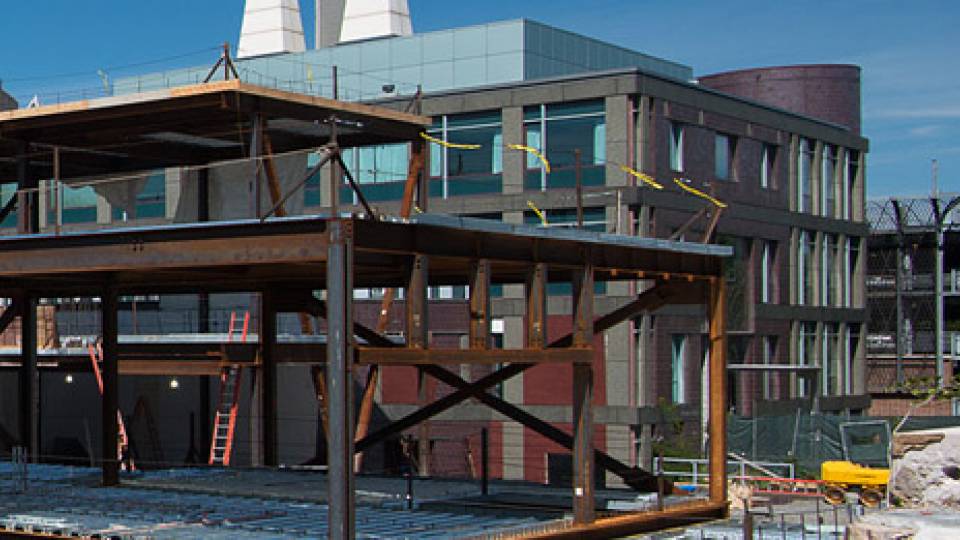A faculty steering committee has been formed to take the next step in the process of planning for a comprehensive renovation of Firestone Library, which is expected to begin in fall 2009.
The committee, chaired by Provost Christopher Eisgruber, will spend much of this academic year developing the educational principles that will guide the project.
"Our goal is to sustain and enhance Firestone's stature as one of the world's great research libraries," Eisgruber said. "We want to improve the accessibility and organization of the library's collections. We want to take better advantage of its public spaces and provide successful, attractive study spaces for undergraduates, graduate students and faculty members. We also want to address some significant maintenance issues and ensure that the structure conforms to building codes. And we want to do all of this in a way that preserves the characteristics that make it a beloved resource for many members of our community."
In 1997, as Firestone approached its 50th anniversary, University Librarian Karin Trainer began working on a building assessment with Shepley Bulfinch Richardson & Abbott, a Boston architectural firm with a specialized library practice. Over the years, the firm met with faculty, students and library staff and spent time observing how the building is used. Representatives also held many meetings with members of Princeton's facilities staff.
"We expect to take advantage of this work, but we also want to incorporate the views of today's students, faculty and staff," Trainer said. "We want to engage in a new round of thinking about the ways Firestone can be made into an even better library for Princeton."
At the Nov. 12 meeting of the Council of the Princeton University Community, Trainer reviewed the history of the project and announced that the architects will be holding focus group sessions with undergraduate and graduate students on Nov. 26-27 and with Firestone staff members between Dec. 5 and Dec. 7.
"By spring, we hope to have a roadmap for how this renovation can advance the library's role in providing a Princeton education to our undergraduate and graduate students and in helping our faculty do their research," Trainer said. "Then the architects will be able to spend the summer incorporating these principles into concrete plans that will lead to construction documents for phase one of the project."
Shepley Bulfinch Richardson & Abbott was responsible for designing the 2003 renovation of Princeton's Marquand Library of Art and Archaeology. The firm also has designed the recent expansion and renovation of the Perkins Library at Duke University and the renovation and restoration of the Boston Public Library.
To minimize disruption to students and faculty, the construction at Firestone is expected to take place in phases over 10 years, beginning with infrastructure work in fall 2009.
Since its founding more than 250 years ago, the library system at Princeton has grown from a collection of 474 volumes in one room of Nassau Hall to more than 11 million holdings in 19 buildings throughout the campus. Firestone, built in 1948, is the main library and assumes primary responsibility for the humanities and social sciences.
In addition to Eisgruber, members of Faculty Steering Committee for the Firestone Master Plan are: Charles Beitz, the Edwards S. Sanford Professor of Politics; Caryl Emerson, the A. Watson Armour III University Professor of Slavic Languages and Literatures; William Gleason, associate professor of English; Anthony Grafton, the Henry Putnam University Professor of History; Molly Greene, professor of history; Constanze Güthenke, assistant professor of classics; Martha Himmelfarb, professor of religion; Michael Jennings, professor of German; Joshua Katz, associate professor of classics; Gillian Knapp, professor of astrophysical sciences; Luigi Martinelli, associate professor of mechanical and aerospace engineering; Dan Osherson, the Henry R. Luce Professor of Information Technology, Consciousness and Culture; Sara Poor, associate professor of German; James Richardson, professor of English and creative writing; Dan Rodgers, the Henry Charles Lea Professor of History; Robert Schapire, professor of computer science; Keith Whittington, the William Nelson Cromwell Professor of Politics; and Qasim Zaman, the Robert H. Niehaus '77 Professor of Near Eastern Studies and Religion.


